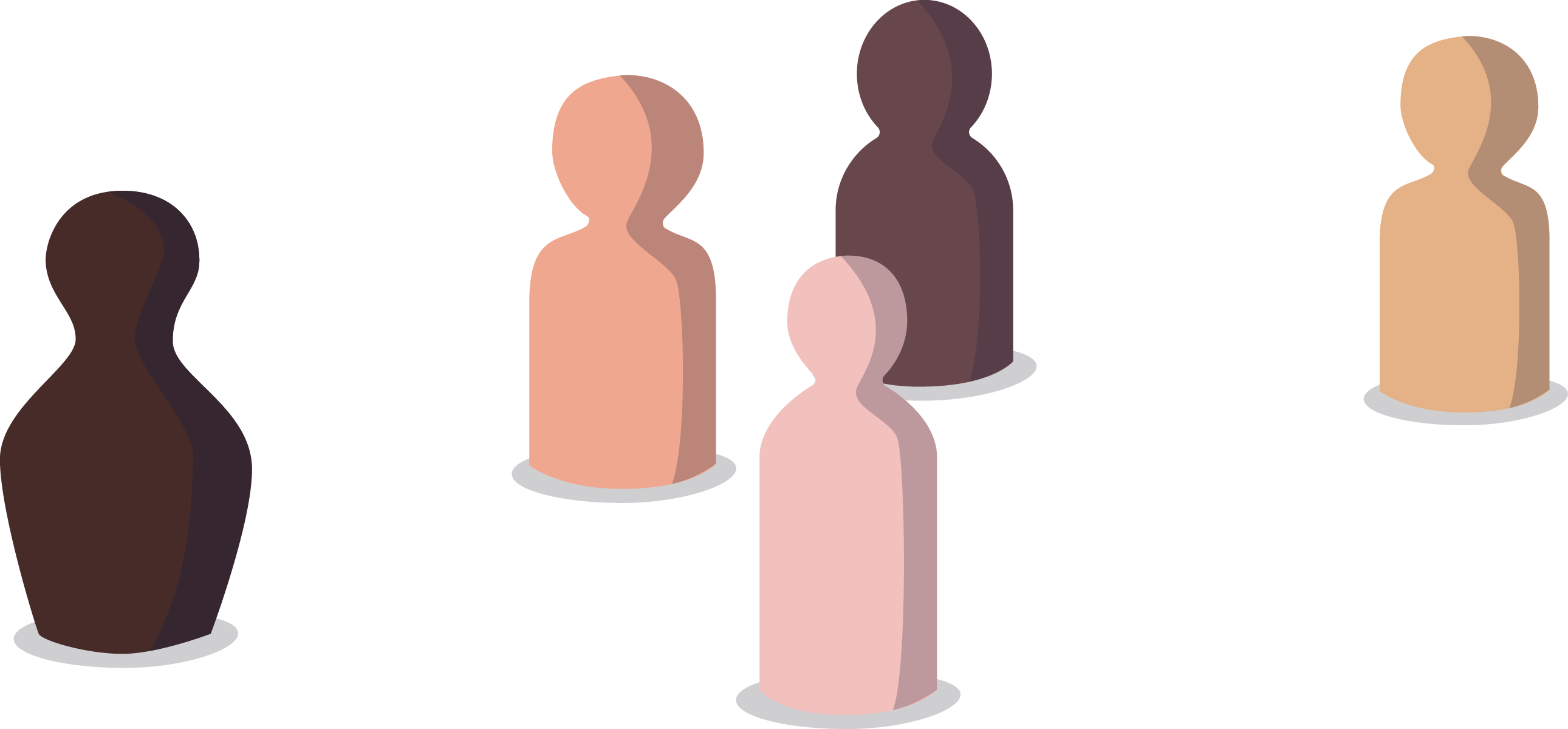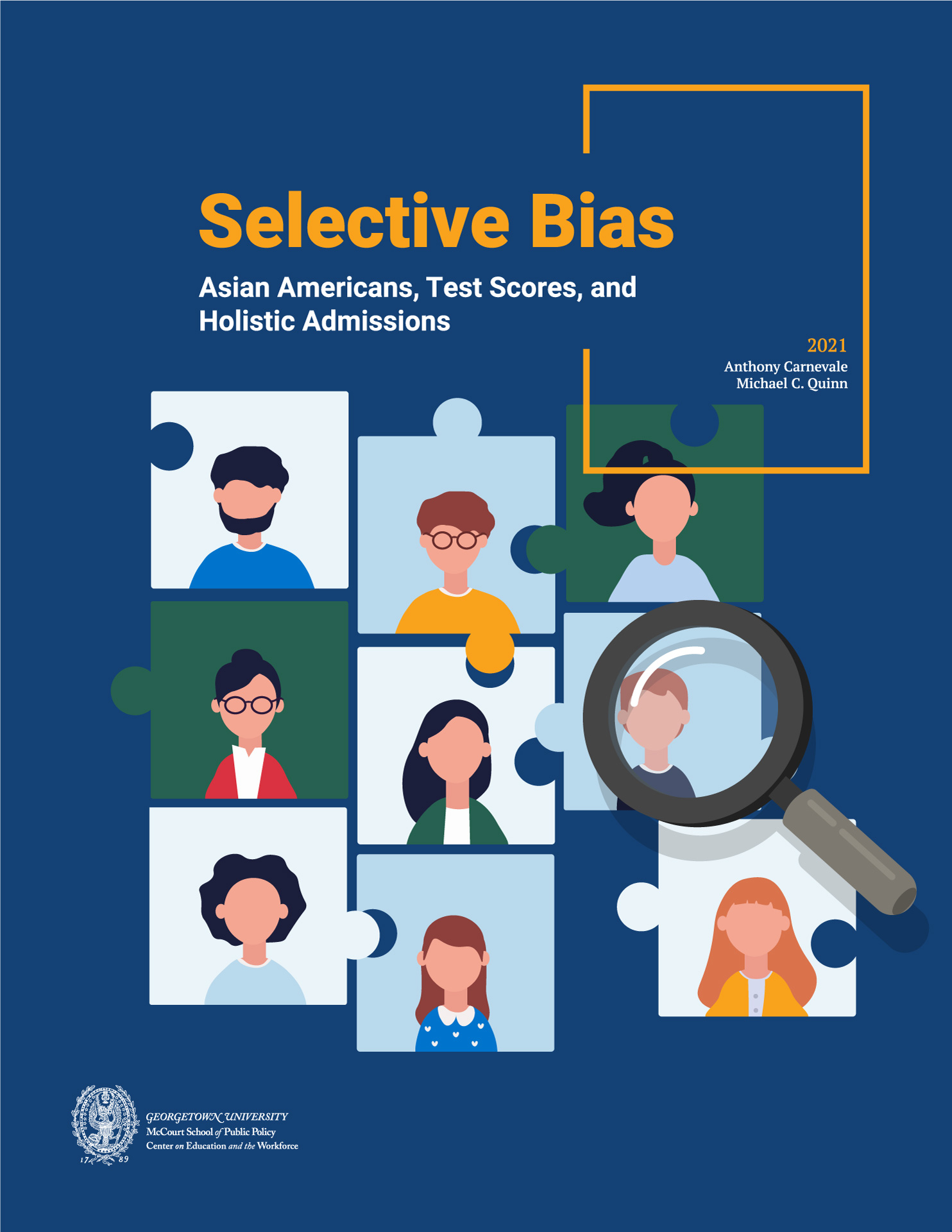Selective Bias
Asian Americans, Test Scores, and Holistic Admissions
Summary
Selective Bias: Asian Americans, Test Scores, and Holistic Admissions evaluates the common arguments made by affirmative action critics and Students for Fair Admissions, which is suing Harvard University and has lawsuits pending against the University of North Carolina and the University of Texas at Austin over their admissions practices. The report finds no strong evidence of discrimination against Asian American applicants in admissions to highly selective colleges.
Court Cases Allege That Asian American Applicants are Held to an Unfair Standard
Critics claim that if colleges considered only academic merit, Asian American applicants would gain a greater number of seats. SFFA and other affirmative action critics often base their allegations on three factors:
- stagnant enrollment shares for Asian American students
- relatively low acceptance rates of Asian American applicants
- differences in SAT scores between Asian American and non–Asian American students at the most selective colleges.
We find all of these arguments to be unconvincing. Here’s why:


The Asian American Enrollment Share at the Most Selective Colleges Has Remained Stable Over the Past Decade
The enrollment share of Asian American and Pacific Islander students at Harvard and at the 90 other most selective colleges has kept pace with their growing share of the four-year college-going population. In fact, the Asian American and Pacific Islander share of enrollments at the most selective colleges grew by 4 percentage points even while their enrollment share at all four-year colleges grew by just 2 percentage points between 1999 and 2018.
Source: Georgetown University Center on Education and the Workforce analysis of data from the National Center for Education Statistics, Integrated Postsecondary Education Data System (IPEDS), 1999 to 2019.
Note: The likelihood of attending is the proportion of a group’s first-time, full-year enrollment at a four-year institution attending Harvard. This trend line was then smoothed using a three-year moving average. The chart above shows how that ratio has changed relative to 2000 over time. International students and students with an unknown race or ethnicity are excluded. Asian American enrollment was combined with Native Hawaiian and Pacific Islander enrollment due to data limitations.
Asian American Students are More Likely to Apply to Highly Selective Colleges Regardless of Test Scores
Among students who scored 1300 or above on the SAT, 65% of Asian American students applied to one of the most selective colleges in the country, compared to 50% of non–Asian American students. And among students who scored below 1300, 12% of Asian American students took a chance and applied to one of the most selective colleges, compared to only 5% of non–Asian American students. Since more Asian American students apply to selective colleges, they are more likely to be denied a seat, which is not evidence of bias.

Source: Georgetown University Center on Education and the Workforce analysis of data from the National Center for Education Statistics, High School Longitudinal Study of 2009 (restricted-use data), 2018.
Note: SAT scores of 1300 and above represent the top quartile of test scores among applicants to the most selective colleges. Scores are out of 1600, and include ACT scores converted to the SAT scoring scale.

The Gain for Asian American Applicants Would Be Marginal in a Test-only Admissions System
Overall, in a test-only admissions system, Asian American college applicants would gain a total of fewer than 3,000 seats at the most selective colleges, compared to the nearly 14,500 seats they typically capture in an admissions year. The share of Asian American high school students in a class attending these colleges would increase from 12% to 14%.
Source: Georgetown University Center on Education and the Workforce analysis of data from the National Center for Education Statistics, High School Longitudinal Study of 2009 (restricted-use data), 2018.
Many Asian American Applicants Already Benefit Greatly from Holistic Admissions
In a test-only admissions system, 21% of Asian American students and 39% of non–Asian American students would lose their seats in the most selective colleges to students with higher test scores. While it is the case that Asian American students who would not make the cut in a test-only approach overall have higher test-scores, they are also nearly twice as likely as their non–Asian American counterparts to have the lowest scores in the selective college applicant pool.

Source: Georgetown University Center on Education and the Workforce analysis of data from the National Center for Education Statistics, High School Longitudinal Study of 2009 (restricted-use data), 2018.

Conclusion
These facts combined tell us that while a test-only admissions standard would affect fewer current Asian American students than non-Asian American students, Asian American students are more likely to be among those who received the largest “boost” from holistic admissions.
Resources
Selective Bias: Asian Americans, Test Scores, and Holistic Admissions evaluates the arguments made by affirmative action critics and finds no strong evidence of discrimination against Asian American applicants in admissions to highly selective colleges.

